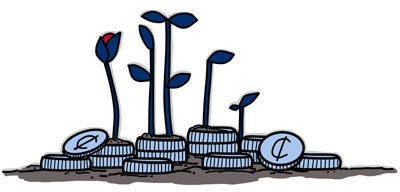- What We Do
- Agriculture and Food Security
- Democracy, Human Rights and Governance
- Economic Growth and Trade
- Education
- Ending Extreme Poverty
- Environment and Global Climate Change
- Gender Equality and Women's Empowerment
- Global Health
- Water and Sanitation
- Working in Crises and Conflict
- U.S. Global Development Lab

Spotlight
The Sustainable Finance Initiative (SFI) for HIV/AIDS is an interagency collaborative effort on DRM across USAID’s Bureau of Global Health, the Bureau for Economic Growth, Education, and Environment, and our Missions abroad, as well the State Department's Office of the Global AIDS Coordinator and the US Treasury Department. SFI develops and implements strategies for domestic resource mobilization (DRM) and sustainable financing for HIV/AIDS and health broadly. Such activities raise domestic resources by assisting Ministries of Health in evidence and analysis to advocate for more public funding for health and HIV/AIDS; increasing technical efficiency in health spending through improvements in public financial management and other cost saving measures; leveraging private sector funding and engaging private providers of health services; and improving tax collection and administration efforts to enable better collection of resources within the existing tax system.
SFI has impacted long-term system changes to the social health insurance program in Vietnam by enabling the inclusion of HIV/AIDS in the country’s social health insurance program: efforts are contributing to a Net Present Value of close to $260 million in domestic resources over a 10-year period. Similarly, in Kenya SFI’s work has lead to between $30 to $40 million in new domestic spending being allocated to the HIV response in each of the next five years.
Find out more about SFI.
For many low income countries, development assistance remains a significant source of financing for health. As countries develop economically, they rely less on donor assistance and more on domestic financing.In the transition, public spending for health tends to remain flat or increase slowly, while private out-of-pocket spending rapidly rises, increasing the gap countries must fill to provide health services. This trend suggests that country health systems are not protecting the poor and most vulnerable from catastrophic medical expenses that can push people into poverty. Thus, providing access to quality essential health services to all of a country’s people is still a challenge despite economic development.
Without mobilizing domestic resources and strategic use of development assistance, countries are unlikely to achieve the Sustainable Development Goal of Universal Health Coverage, which ensures financial risk protection and access to quality essential health-care services, medicines, and vaccines.
To address this challenge USAID works to increase public and private domestic resources for the shared goals of USAID and its partner countries, including the use of catalytic private sector investment and philanthropy and public-private partnerships. Learn more about USAID’s agency-wide approach to DRM.
View a visual interview with Dr. Ariel Pablos-Méndez on his perspectives on innovative financing.








Comment
Make a general inquiry or suggest an improvement.